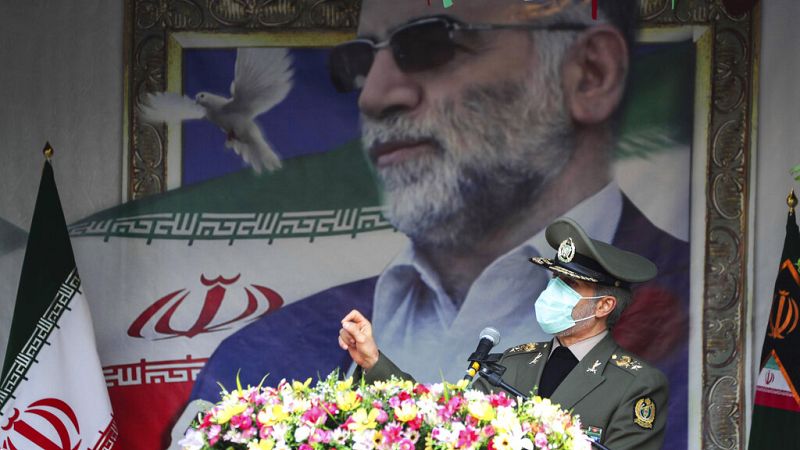
New details have emerged about the 2020 assassination of senior Iranian nuclear scientist Mohsen Fakhrizadeh, which Tehran blamed on Israel's Mossad spy agency.
Israel has never publicly claimed responsibility, including during or after the flare-up in hostilities between the two countries in June.
However, the latest Jerusalem Post report has claimed that Fakhrizadeh was first shot while sitting in his vehicle on 27 November 2020. Believing he might still survive, operatives continued to fire at him after he exited the car and attempted to flee. He died shortly thereafter, according to an Israeli newspaper.
The new information appears to support Iran's official account of events as made public by Major General Ali Shamkhani, secretary of Iran's Supreme National Security Council. Shamkhani said at the time that Fakhrizadeh was killed by a remote-controlled machine gun linked to a satellite system.
Israeli intelligence sources later confirmed that a weapon matching that description - a US-made M240C 7.62mm machine gun - was smuggled into Iran in parts and assembled over eight months by a Mossad team of roughly 20 operatives.
The gun was reportedly mounted in a blue Zamyad pickup truck parked along Imam Khomeini Street in Tehran and operated remotely to minimise risk to Fakhrizadeh's wife, who was travelling with him at the time of the assassination.
A second vehicle equipped with cameras is said to have been used to confirm the scientist's identity moments before the ambush. The claims could not be independently verified.
Fakhrizadeh, long regarded by Western and Israeli intelligence as a central figure in Iran's nuclear programme, was declared a "martyr" by Iranian authorities and given a state funeral.
According to Iranian sources, the Mossad had considered targeting Fakhrizadeh as early as 2009, under then-director Meir Dagan, but internal debate over the feasibility of such an operation reportedly delayed any action.
By 2020, Fakhrizadeh's operational role may have become more replaceable, but his strategic importance and access to Ayatollah Ali Khamenei were reportedly undiminished.
His killing is widely believed to have set back Iran's nuclear ambition by months or even years, while enhancing Israel's covert operational and intelligence capabilities.







